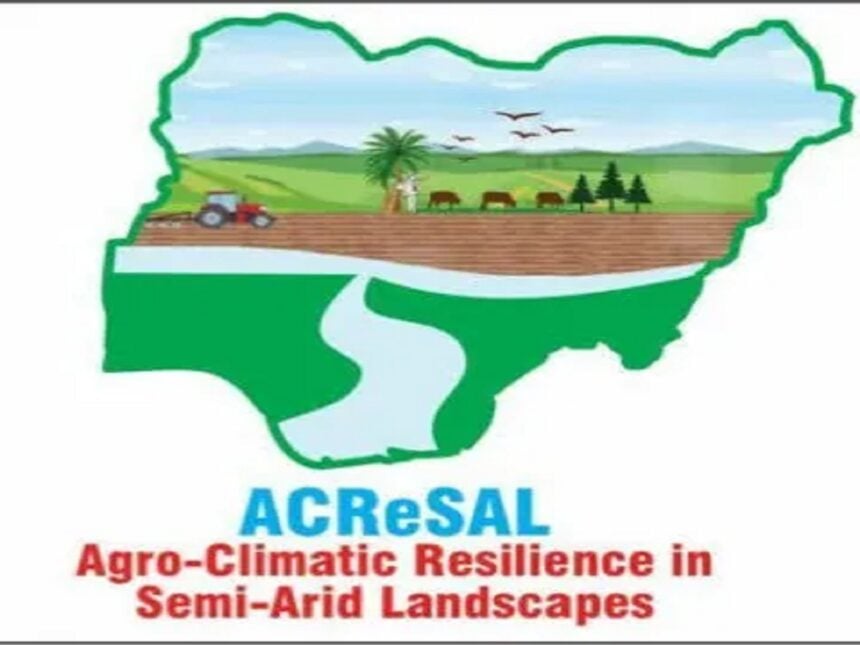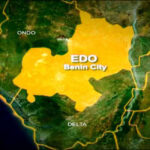The Federal Government, through the Agro-Climatic Resilience in Semi-Arid Landscapes (ACReSAL) Project, has set a target of restoring one million hectares of degraded land across 10 states in northern Nigeria.
The National Project Coordinator of ACReSAL, Mr. Abdulhamid Umar, disclosed this during a stakeholders’ engagement in Lokoja, Kogi State. He explained that the initiative, supported by the World Bank, seeks to promote sustainable development, restore degraded landscapes, and strengthen the resilience of millions of people living in semi-arid regions.
Represented by Engr. Shettima Adams, Umar said the engagement focuses on developing catchment management plans for Sarkin-Powa-Kaduna, Okwa-Mada, Gurara-Gbako, Lokoja-Niger, and Aloma-Ebonyi.
“The engagement will also consider the opportunities and challenges in the catchments, which will form part of the catchment management plan,” he said. “Catchment management plans are critical for sustainable development, as they provide a framework for managing natural resources, mitigating environmental challenges, and promoting social and economic development.”
According to him, the plans will be structured into short, medium, and long-term phases, ensuring that the project achieves its goal of restoring one million hectares of land and directly impacting 3.4 million Nigerians.
Umar stressed that the ACReSAL Project is designed to promote long-term transformation, restore dignity to drylands, rebalance ecosystems, and integrate women and girls fully into society.
“With the guidance of the World Bank and the support of the Federal Government of Nigeria, the ACReSAL Project is poised to make a significant impact in the lives of millions of Nigerians,” he said, urging stakeholders to make meaningful contributions to the process.
ALSO READ: Edo by-election: BVAS machine is just too slow, Okpebholo laments
Kogi State Commissioner for Environment and Ecological Management, Hon. Olusegun Stephen Joseph, commended the choice of Lokoja as host for the engagement and reaffirmed Governor Ahmed Ododo’s commitment to the project. He described the initiative as a transformative effort to address environmental degradation and climate vulnerability.
Similarly, the Kogi State Project Coordinator, Mrs. Ladi Jato, highlighted ongoing interventions in the state, which include gully remediation works at Etahi, Ankpe, and Omigbo—restoring over 11,000 hectares of degraded land. She noted that water harvesting initiatives had also restored 1,540 hectares and increased water storage capacity by 800 cubic meters.
“We are implementing agroforestry and tree-planting activities, which have so far restored over 3,000 hectares across the entire catchment,” Jato said. “Our interventions are guided by clearly delineated micro watersheds and extensive stakeholder engagement, ensuring that every solution is tailored to community needs and environmental priorities.”
She praised the World Bank task team and the Federal Project Management Unit (FPMU) for their support, expressing hope that the engagement would foster inclusivity, knowledge sharing, relationship building, and grievance management among beneficiaries.
Also speaking, the Maigari of Lokoja, Alhaji Ibrahim Gambo, represented by the Rogan of Eggan, Alhaji Mohammed Alhassan, pledged the support of the traditional institution for the project’s implementation.
WATCH TOP VIDEOS FROM NIGERIAN TRIBUNE TV
- Let’s Talk About SELF-AWARENESS
- Is Your Confidence Mistaken for Pride? Let’s talk about it
- Is Etiquette About Perfection…Or Just Not Being Rude?
- Top Psychologist Reveal 3 Signs You’re Struggling With Imposter Syndrome
- Do You Pick Up Work-Related Calls at Midnight or Never? Let’s Talk About Boundaries






